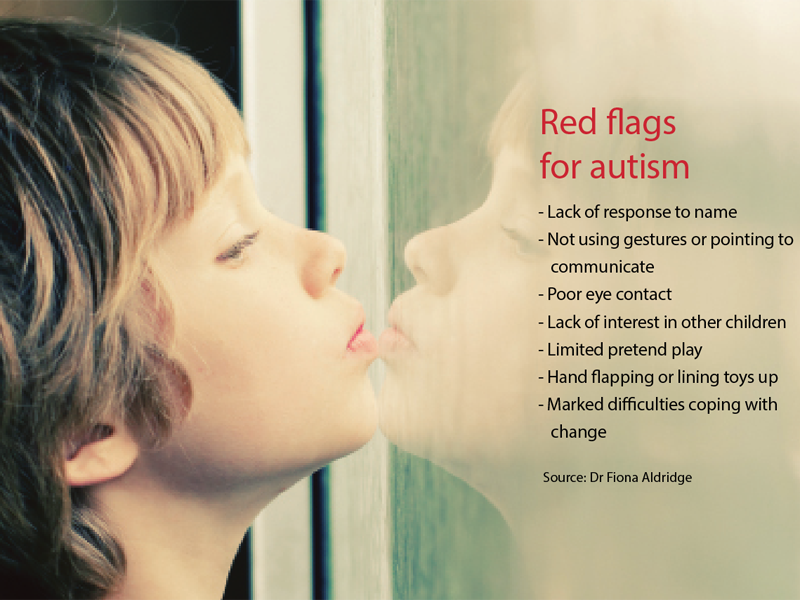Standardised Medicare-funded screening for all children could reduce disability costs in the long term
Autism specialists have voiced support for a universal screening program for autism spectrum disorder, which they say could lift rates of early diagnosis.
While autism diagnoses grew by as much as 80% across Australia between 2008-12, children were rarely diagnosed at the recommended age of two.
“The current median age of diagnosis is between four and five and that’s just terrible,” Professor Andrew Whitehouse, the head of the Developmental Disorders Research Group at Telethon Kids Institute, said.
“We know if we get in earlier than that, we can reduce life-long disability costs,” he said.
Part of the problem was the absence of a systematic autism screening process in Australia, Dr Fiona Aldridge, a clinical psychologist at Autism Spectrum Australia said.
“There would be advantages to universal screening,” she said. “Specifically, it would allow for the earlier identification of children presenting with autism spectrum disorder, which in turn would mean that children would be able to access early intervention from a younger age.”
The model proposed by Professor Whitehouse would create a Medicare item number for autism screening by GPs.
GPs would screen for autism by looking for autism “red flags” or by making use of questionnaires, such as the Modified Checklist for Autism in Toddlers-Revised (M-CHAT) or Autism Detection in Early Childhood (ADEC), Dr Aldridge said.
There is currently a Medicare item number for autism diagnosis, which is typically made by a paediatrician or psychologist, but not for autism screening by GPs or health nurses.
“I talk to GPs and they tell me they just don’t have the time to do [autism screening] without a specific [Medicare] item,” Professor Whitehouse said.
Autism screening differed by state, but GPs and early childhood centre nurses usually waited until parents or teachers raised concerns before assessing the child, according to Dr Aldridge.
Most states had broad-based developmental screening to identify learning and language difficulties, but few offered autism-specific screening for all children, Professor Whitehouse said.
Victoria was the exception, however, said Professor Bruce Tonge, who heads the Centre for Developmental Psychiatry and Psychology at Monash University.
Five years ago, extra screening items were added to the routine health checks undertaken by maternal and child health nurses on children up to two years of age.
“These red flags for autism relate to the child’s socialisation, for example, making eye contact and responding to vocalisation from a parent and their early play activities,” Professor Tonge said.
“But if we could bring in a national process that would bring everyone on the same page and reduce inequity between states,” Professor Whitehouse said.
Universal screening is not a new idea. The American Academy of Pediatrics in 2007 recommended that all children be screened for autism at 18 and 24 months of age.
However, the approach is controversial, with the American Academy of Family Physicians and the US Preventative Services Task Force suggesting the evidence for universal screening is lacking.
Professor Whitehouse said one concern was that universal screening might lead to overdiagnosis.
“But the sensitivity and specificity of screening tools now are far better than they once were, so we think that concern is lessening,” he said.
Dr Aldridge said it was unlikely that universal screening would lead to overdiagnosis because GPs would refer suspected cases of autism to a paediatrician for detailed assessment.



